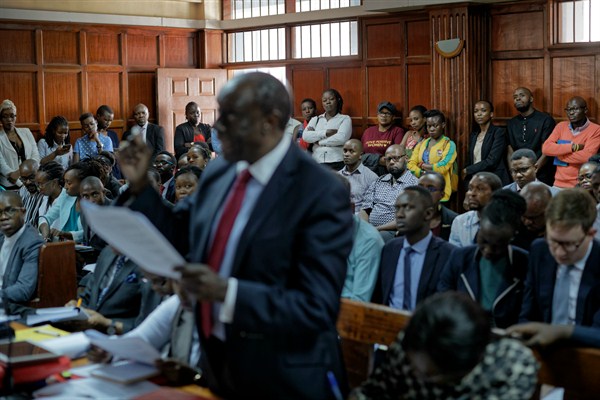In this week’s Trend Lines podcast, WPR’s editor-in-chief, Judah Grunstein, and managing editor, Frederick Deknatel, discuss the NATO summit and the implications of U.S. President Donald Trump’s disruptive approach to the alliance. For the Report, Nanjala Nyabola talks with WPR’s senior editor, Robbie Corey-Boulet, about Kenyan filmmaker Wanuri Kahiu’s struggle to get her internationally acclaimed film, “Rafiki”—a love story between two women—screened in her native country, and the social and legal implications for Kenya’s film industry and creative community.
If you like what you hear on Trend Lines and what you’ve read on WPR, you can sign up for our free newsletter to get our uncompromising analysis delivered straight to your inbox. The newsletter offers a free preview article every day of the week, plus three more complimentary articles in our weekly roundup every Friday.

